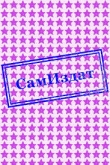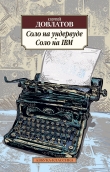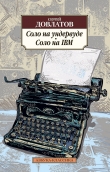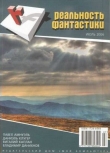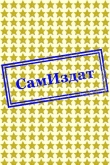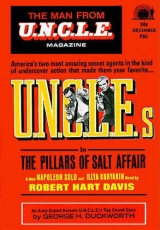
Текст книги "[Magazine 1967-12] - The Pillars of Salt Affair"
Автор книги: Bill Pronzini
Жанры:
Боевики
,сообщить о нарушении
Текущая страница: 6 (всего у книги 8 страниц)
Splinters gouged into his skin, but he paid no attention to the stinging pain.
After what seemed like an eternity, he reached the other side of the hole. He paused there momentarily, breathing deeply, rubbing sheets of sweat from his face and eyes.
He walked through the trestle cautiously, watching the trackbed below him, bypassing ties and rails that looked to be rotted through or about to give way, stopping to test with his hands and feet areas that he was-not sure of. Finally, he reached the end of the trestle and stepped onto the solid ground of the tracks on the other canyon wall.
He wanted to pause there, rest his aching body. But the feel of the ground, its stability, seemed to instill new purpose in him, and he moved onward along the tracks without stopping.
He moved downward, in close to the granite, and when he reached the point where the tracks curved around the canyon wall, he turned, looking across to the wall facing him over the gorge. He saw no one. His breathing became easier. He went around the curve of the tracks and out of sight from the THRUSH pursuers he knew would be following him.
He walked for hours. Afternoon began to give way to night. It grew colder, and he saw clouds forming in the sky above him. It would snow soon, and when it did he would have to reach shelter. He knew the consequences if he didn't. He was already chilled to the marrow. He reached the timberline just as it began to get dark.
Solo saw, as he rounded a bend, that the tracks fell into a long, steep incline, and at the bottom and growing sparsely up the side of the mountain there, was a thick forest of Colorado Blue Spruce. The mountains above him through which he had been making his way, gave way to pitted -gullies and long, flat stretches of woodland.
He had made it out of the Rockies. He began to run. He ran, lurching, stumbling over rocks, down the incline, running almost blindly in the twilight. His breath choked from his lungs in wheezing gasps. But still he ran.
Solo reached the bottom of the incline, smelling the odor of pine and moss, and the chill, building snow in the air. He ran along the trackbed, through the trees, and he stopped running, slowing into a staggering walk, only when his tortured lungs screamed for relief and threatened to burst through his chest.
It had begun to snow when he saw the road. The snow was light at first, thin, misty flakes. It mixed with the gathering darkness to make front and peripheral vision difficult, and when he saw the road he thought his mind was playing tricks on him.
Solo stopped, peering ahead of him. The road bisected the tracks, disappearing into the forest on both sides. But there was a road!
He began to run again and halted where the road crossed the tracks. It was rutted, passable only by jeep, little more than a fire trail. But it had been used often, and recently judging from the freshness of the tire treads he saw there. That had to mean it led to a ranger station; yes, he was sure of it. A ranger station, a fire-prevention outpost, some place where he could get help.
He tried to remember how the terrain had looked from his earlier elevation. To the left, a thick forestland of blue spruce, unbroken wilderness. To the right, higher ground. Ranger stations were always built on higher ground to protect them from the possible danger of fire.
Napoleon Solo turned to the right. He tried to run, but his right leg had grown numb. The gash he had received in Mexico, plus the chilling cold and the countless falls, had begun to take their toll. He could move only in a half-shuffling, half-walking step.
The snow began to flurry, building into a storm. He could see only a few feet in front of him. He had become almost oblivious to the cold, and he knew that was one of the first signs a man experienced before freezing. He knew it, but he could not seem to fight off the torpor that took hold of him, the lethargic feeling of drowsiness.
The road seemed to widen. He saw that, even through the swirling snow, and at first it had no significance for him.
And then he saw the light It glowed ahead of him, a dim yellow, an unblinking yellow eye in the darkness and the falling snow He stared. A light! He had an in sane urge to laugh.
He tried to run, fell to his knees and then sprawled forward. He couldn't get to his feet again; his arms were leaden, frozen from the cold. He began to drag his body toward the light. He tried to call out, but his throat would not work and no words came out. He realized the uselessness of trying to make himself heard over the howling wind.
As he crawled forward, he could make out the dim outlines of a building, sitting dark and shadowy at the far edge of a clearing. The light shone from a single window beside the door.
He reached the porch of the building and dragged himself up the three wooden steps there. With the last ounce of strength he had left, he threw himself forward against the door, hammering feebly with his frozen hands at its wooden base.
Footsteps sounded inside. The door was pulled open. "My God!" a man's voice said. "Pete! Come here! Quick!"
Hands touched his shoulders, lifting Napoleon Solo inside. He felt warmth, real warmth. He raised his eyes, looking into the face of an alarmed Colorado Forest Ranger, that title displayed across the front of his green uniform shirt.
Solo's throat worked and he forced hoarse words past his lips. "Telephone," he said. "Have you got a telephone?"
"Yes," the ranger said. "What happened?"
Solo didn't hear the rest of it. He felt another pair of hands on his legs, and then he was being lifted. He relaxed his body. He knew, somehow, that it was going to be all right, now.
ACT VI: STAND AND FIGHT
Alexander Waverly received the long distance phone call exactly thirty minutes after Illya Kuryakin had left New York for Hoover Dam.
He had been busy during that thirty minutes. He had put through a call to the Secretary of the Interior in Washington, getting him out of bed, and had explained the situation. The Secretary, obviously alarmed, had agreed to instruct Hoover Dam officials to immediately shut down all facilities. He informed Waverly that an immeasurable amount of damage could be done to the Dam itself, since the huge dynamos inside drew 1,344,800 kilowatts of hydroelectric power from the Colorado River. Both Waverly and the Secretary agreed that the entire affair should be kept as quiet as possible in the interest of public safety and wellbeing.
Waverly had then contacted the U.N.C.L.E. district office in Salt Lake City, directing the agent-in-charge to dispatch a group of operatives to Pardee. He gave a quick outline of what they were to be looking for, and of the circumstances in general.
He had been about to radio the U.N.C.L.E. Air Command, to order them to conduct a thorough air reconnaissance of the entire upper half of the Colorado River, when the call came through on his private line.
The man on the other end of the wire identified himself as a Colorado State Forest Ranger named Emmett, Ranger Station 17, Rocky Mountain National Park. He said that a man, half-frozen almost delirious, had stumbled to their door over an hour before. After asking if they had a telephone, Emmett said, the man had passed out, and they had administered hurried first aid. When the man regained consciousness, he had given them Waverly's private number and implored them to put the call through without delay, it was a matter of the utmost urgency, involving national security.
Waverly's brain was whirring like the well-organized computer it was. "The name of this man, please?"
"He says he is Napoleon Solo."
Faint traces of what might have been a smile touched Waverly's stoical features. He asked, "Is Mr. Solo able to speak with me?"
"I can't keep him in bed, weak as he is," Emmett said. "He's right over my shoulder."
Solo came on the line. He began talking immediately, his voice hoarse, only barely audible over the long-distance wire. He detailed everything that he had learned, everything that had happened to him, beginning with Estrellita Valdone and his exposure to the nerve gas. He dwelled at length on his encounter with Dr. Mordecai Sagine.
Waverly listened intently. When Solo had finished, he explained that U.N.C.L.E. had learned only a short time ago that the Colorado River was the initial prime THRUSH target, and related the pertinent details surrounding Illya's capture of Estrellita Valdone and the man named Benson.
"Illya!" Solo interrupted. "Illya's alive?"
"Yes, he's alive, Mr. Solo," Waverly said. "Did you believe him dead?"
Waverly could hear the relieved sigh Napoleon Solo emitted on the other end. Solo related rapidly that he had thought Illya killed in the accident in Mexico, and that THRUSH hadn't led him to believe any different while he was being held captive.
Waverly said, "I have sent Mr. Kuryakin to Hoover Dam. It has been shut down completely in an effort to stop crystallization of the entire Colorado River."
"The chemical was supposed to have been introduced at seven o'clock, Mountain Time," Solo said. "Over three hours ago. Yes, there might still be time."
"You say that the Colorado was only to be a test?" Waverly asked.
"The final test," Solo said. "The first step in THRUSH's singular offensive. Once THRUSH Council has been satisfied, then their entire operation will swing into full-scale, simultaneous action."
Waverly tapped his pen on the desk top absently. "I was afraid THRUSH were planning something along those lines," he said. "Every major body of fresh water in the world, eh? Unless I miss my guess, THRUSH will waste no time once the Colorado is crystallized. No time at all."
"Tomorrow some time, then," Solo said. "Tomorrow morning!"
"Exactly, Mr. Solo," Waverly said. "And once THRUSH realizes that we know of their little plot, which they shall when only the upper section of the Colorado succumbs to the chemical, they will attempt to take prompt advantage of the upper-hand they hold before we can react further. Tomorrow morning is rather a safe assumption, I should think."
"Which means we've got to stop them before they can get underway," Solo said.
Waverly said, "The salt chemical is being manufactured at the fortress in the Rocky Mountains, is that correct?"
"Yes," Solo said. "Manufactured in aggregate amounts, judging from what I saw." "Is it being stored there for later transportation, do you think? Or have they previously transferred quantities of it elsewhere?"
"Some, possibly," Solo said. "But I'd say most of the chemical—is still at the fortress. They were working like beavers bottling the stuff today. I think they plan to take it out by helicopter."
"Most likely to a hidden THRUSH air base," Waverly said. "It would be a simple task for their jets to convey the chemical to any section of the world in a matter of hours." He paused, deep in thought. "If we can penetrate their fortress and seize the chemical, we shall nip the entire maneuver before it begins. Do you know its exact location, Mr. Solo?"
"I think so," Solo said. "The rangers have a geographical map here, and I've been going over it." He gave Waverly the longitude and latitude, according to the map.
"I am going to send interceptor planes into the area immediately," Waverly told him. If THRUSH attempts to transport the chemical tonight, we shall see that they do not succeed."
"How do you propose to get inside the fortress?" Solo asked him. "It's solid concrete and steel, built into the hollow of the mountain. Not bombs, surely. The antidote would be destroyed, as well as the chemical and the formulas for them."
"Not bombs," Waverly assured him. "I believe I have the answer to that problem. The road you mentioned, leading up to the fortress. Do you know where it begins?"
"There are two roads, I think. The main one begins several miles northwest of where I am now," Solo said. "A mining community called Granite River." He gave its exact location.
"I will expedite a full U.N.C.L.E. raiding unit to Granite River as quickly as possible. They will mobilize there, and at dawn attack the fortress."
"I had better lead the unit," Solo said. "I know the area now."
"No, Mr. Solo," Waverly said. "You have been through quite enough. You are to remain at the ranger station. In bed."
I've been on this assignment from the start," Solo said stubbornly. "I want to be in on it at the finish."
"You are to remain at the Ranger station," Waverly repeated in a firm voice. "That is an order, Mr. Solo."
"But sir..."
"An order, I repeat! " Waverly barked. He hung up.
Waverly sat staring at the silent receiver. He knew Napoleon Solo's carefree, almost indifferent, attitude toward his job with U.N.C.L.E. was just an elaborate facade hiding the true, dedicated patriot within.
TWO
At the first yellowish rays of dawn the following morning, Illya Kuryakin stood on the observation deck of Hoover Dam. A chill, whistling wind tugged at his heavy mackinaw, numbing his face beneath the parka hood.
At the base of the dam stretching upstream as far as he could see, was a frozen, stilled floor of white. Lake Mead, the lake formed by the presence of Hoover Dam and extending some one-hundred fifteen miles upstream, and beyond that the raging Colorado River, were now nothing more than rock salt.
Beside Illya, the director of Hoover Dam said, "We closed all the locks and spillways, and shut down the dynamos, as soon as we received word from Washington last night. It appears as if we were in time."
Illya Kuryakin nodded. Downstream, as he had seen moments before, the Colorado flowed on its natural course. They had managed to halt the crystalisation at the dam, saving, as Waverly had said, thousands of acres of fertile land that depended on the Colorado for irrigation.
Illya had arrived at the Dam a few minutes earlier. He had taken an U.N.C.L.E. jet from New York to Las Vegas, waited impatiently for a heavy storm there to subside, and then had gone by helicopter to Hoover Dam. The entire dam had of course, been blocked off, and the copter had set down without obstruction in the visitor's parking lot.
He had received the news that Napoleon Solo was safe while aboard the jet enroute to Las Vegas. Waverly had radioed, telling him what Solo had learned and informing him of the course of action U.N.C.L.E. was taking.
Illya had asked Waverly if he could join Solo at Granite River for the assault on the THRUSH fortress in the Rockies, and had been told that he was to continue on to Hoover Dam and remain there until further instructions. Waverly did not elaborate as to his reasons for wanting Illya there.
Illya was dissatisfied. He felt left out of things. He did not want to be stuck here on the concrete dam; the need for positive action, fed by the long hours and days of waiting, was strong inside him. Why had Waverly wanted him to remain here when he could...?
He realized the director was speaking to him "...cold out here," the director said. "Why don't you come down to my office? I have some coffee there."
"All right," Illya said glumly.
Inside the director's office, Illya sat with a steaming cup of black coffee, wondering how the U.N.C.L.E. attack on the THRUSH fortress, now underway, was progressing.
The director, sitting across from him behind a large desk, chewed his lip.
"Frankly, Mr. Kuryakin," he said finally, "This is the gravest situation we've ever faced here. There have been heavy snow storms in the Rockies of late. Because of that, there will be a strong run-off of snow into the Colorado. Will this fresh water crystallize upon contact with the already hardened water?"
"I'm not sure," Illya said. "I should think it would."
"That's what I was afraid of," the director said. "You say there is an antidote for the process?"
"Yes."
"Unless this antidote were placed into the river carefully, in some way regulating the flow of the water, then we are faced with a danger of floods. There is a tremendous volume of water built up in the mountains, and the flow is regulated through our facilities here. But we are only able to handle 4,400,000 cubic yards capacity. Anything above that would have disastrous effects."
"I'll notify our people to use it only with the utmost caution when they confiscate the antidote." Illya did not mention the possibility the assault might fail. He didn't even want to ponder that potentiality.
The director nodded. "It will have to be used soon," he said, "before too great a volume of water can build in the mountains."
Using his U.N.C.L.E. communicator, Illya Kuryakin contacted Mr. Waverly in New York and imparted this information. U.N.C.L.E. headquarters was in a state of suspense waiting to learn how the invasion of the fortress was progressing. To that moment, they had received no communication.
For the next two hours Illya sat in the director's office. The continued inactivity was telling on his nerves. Finally, the immobility became too much for him, and he told the director he was going up to the observation deck again, to get some air.
The chill wind seemed to have increased in velocity outside. Illya walked along the observation deck, hands in the pockets of his mackinaw, brooding. He looked down at the frozen floor of salt, thinking how very close THRUSH had come in this single bid for world domination. And it wasn't over yet. If THRUSH had managed to get a large quantity of the salt chemical out of that mountain fortress.
Waverly had told him that the interceptor planes he had sent into the area the night before had encountered nothing. Unless they got it out before, Illya thought. Better give Mr. Waverly another call. Maybe...
In the quiet of the early morning and with the dynamos in the dam beneath him shut down, Illya heard the helicopter before he saw it.
He tilted his head back, ears straining, peering up into the cold, gray sky. He saw it finally, coming in from the west, across Lake Mead, a tiny speck at first, and then looming larger as it approached the dam.
He thought at first that it was an U.N.C.L.E. helicopter, sent by Mr. Waverly for some reason. But as it neared, he saw that it was smaller, a different model than that used by U.N.C.L.E.
THRUSH! Of course! That was why Waverly had wanted him to remain at Hoover Dam; he had suspected that THRUSH might come there to inspect its handiwork.
Illya turned and began to run toward the helicopter that had brought him to Hoover Dam, sitting silently in the empty parking lot at one end of the observation deck. His blood raced. Finally he was going to get a chance to act.
He reached the helicopter. It was empty. Where was that blasted pilot? He looked again at the approaching helicopter. It had reached the far end of the dam, coming over the bluff there.
No time to look for the pilot now, Illya thought. He slid into the cockpit, fastened the safety belt, and switched on the ignition. He let the rotary blades revolve slowly, warming, and stared upward through the glass dome.
They had seen him. The-other helicopter slowed, halting its approach, and then banked sharply, turning, and started back the way it had come. Illya shoved the throttle on the U.N.C.L.E. copter forward, and it rose, gliding left as he hurriedly maneuverd the controls.
His face grim, Illya chased after the helicopter.
THREE
The U.N.C.L.E. attacking force supplemented by interceptor planes and jet fighters overhead, left the mining community of Granite River a few minutes before daybreak.
Napoleon Solo, weak, frost-bitten hands encased in heavy mittens, fatigue covering him like a blanket after a restless night, had arrived a few minutes earlier in a jeep driven by Emmett. Despite loud protestations from the men present, concerned over his appearance, Solo perversely insisted he was leading the attack, no matter what happened.
The force consisted of roughly a hundred men, specially trained in this type of assignment, flown in from various parts of the country. There were several jeeps, three large canvas-covered trucks, and an arsenal ranging from handguns to small mortars.
Mounted on two of the jeeps were strange-looking black boxes, somewhat larger than fruit crates, and containing a multitude of dials and gauges. Both boxes were covertly watched over by skilled U.N.C.L.E. technicians from New York City.
Upon seeing the boxes, Solo knew immediately how Waverly planned to penetrate the concrete and-steel fortress. Each was capable, he knew, of producing a type of Laser beam, specially modified by U.N.C.L.E. scientists. The beam, used only on rare occasions by U.N.C.L.E. because of the awesome destructive power it possessed, was able to disintegrate, according to intensity, any metal or substance known to man.
Napoleon Solo, riding in the lead jeep, led the convoy up the mountain road. They encountered no resistance. When they reached the end of the road leading upward from Granite River, they found a second road, its entrance well hidden, that would deploy into the mountains to the right. This second road had been apparently built by THRUSH, since neither of the forest rangers professed any knowledge of it.
The convoy entered this second road. Overhead, one of the U.N.C.L.E. intercept jets radioed via the short wave band in Solo's jeep that no THRUSH opposition awaited them outside the entrance to the fortress. Solo reasoned that THRUSH had lookouts in the immediate area, and that they knew of U.N.C.L.E.'s pending arrival, and of the jets. Apparently, he decided, THRUSH felt their fortress was impenetrable, and were content to stave off the U.N.C.L.E. attack from within.
They came in sight of the sloping granite wall that hid the entrance to the fortress minutes later. Acting with well-organized speed, the U.N.C.L.E. force began to mobilize. Men dismounted from the trucks and jeeps, weapons were loaded, and the boxes housing the deadly Laser beams were carefully lifted to the ground and placed in readiness.
One of the jets, fighter-equipped, made passes directly overhead, waiting. When the U.N.C.L.E. unit was at attack-ready, Solo turned to where the technicians hovered about the Laser boxes. The mountain road was still and silent. The tension in the chill, snow-tinged air was electric.
Napoleon Solo gave the command. Buttons were pressed simultaneously on the black boxes. They began to glow with a violent purplish light, blinding if looked at directly, and a low, humming sound came from each. The light and the hum lasted only a single instant, and then the boxes became still again.
The lower portion of the granite wall before them, and the concrete-and-steel behind it, disintegrated.
In that single instant the Laser beams were trained on the wall, a gaping hole appeared there almost magically revealing the warehouse Solo had been in the day before It had been jammed with THRUSH guards, waiting there. Those who had been unlucky enough to be directly in front of the entranceway had caught the glancing impact of the Lasers, and lay now on the concrete floor. Some were dead, others terribly burned by the radiation The rest milled about in panic, the suddenness of the assault turning their rank into chaotic confusion.
The U.N.C.L.E. force, led by Solo, attacked under protective cover of a burst of machine gun fire from the jet above, spraying the mountain road in front of the entrance.
They encountered almost no opposition from the frightened THRUSH guards. The element of surprise, and the awesome destructive power of the Lasers, had made the U.N.C.L.E. penetration of the fortress a quick and, for them, bloodless one.
Leaving some of the agents to guard the prisoners they had taken, Solo led the remainder to the elevators against the left-hand wall. One of the technicians went to the control board behind the partition to the right, found the levers operating the elevators there and brought them all to basement level.
A group of agents rode to each of the three remaining levels of the fortress for search-and-seizure operations. Solo went to the top floor, the laboratory and manufacturing plant.
A state of confusion reigned there. The scientists, workers and guards there were well aware of the U.N.C.L.E. invasion, and were attempting to organize themselves when Solo and the U.N.C.L.E. agents with him emerged from the elevators.
Solo shot one guard, brandishing a machine gun, in the leg, and one of the other operatives winged a white-coated man with a revolver. After that there was no resistance.
Solo, after the THRUSH men had been herded into one section of the laboratory, went immediately to the private lab of Dr. Sagine at the far end. He found it deserted.
"Where is Sagine?" Solo demanded.
The THRUSH men were stony-faced.
Solo singled out a hawk-faced little man with frightened eyes, grabbed him by the scruff of his white-smock and dragged him of to one side.
"Better talk, friend," Solo said. "You will eventually, you know. We have ways..."
It did not take much persuasion on Solo's part to learn that Sagine had left the fortress some time late the previous day, bound for the town of Pardee, in Utah, to supervise the introduction of the salt chemical into the Colorado River. Solo then questioned the man carefully, asking which of the scientists present knew of the formula for the chemical, and of its antidote, and how the antidote was administered. The frightened little man relinquished the answers almost gratefully.
Solo then checked with the balance of the U.N.C.L.E. force on the lower floors. He was told by the leader of each group that everything as under control, that prisoners had been taken.
U.N.C.L.E. now controlled the fortress fully.
One of the U.N.C.L.E. agents in the warehouse also informed Solo that a search had revealed hundreds of jars of chemical there, ready for transportation. The agent had questioned one of the captured guards and had learned that THRUSH had not as yet transferred any out of the fortress. They were waiting to receive word as to the success of the Colorado River venture. As soon as that word had been given, the chemical was to be shipped by helicopter to a hidden THRUSH Air Base near by for distribution throughout the world.
Solo immediately used his communicator to contact Mr. Waverly, waiting in New York, and told him that the assault had been a success. He relayed what the little man had told him about Dr. Sagine, and that his earlier conclusions concerning THRUSH knowledge of the salt chemical and its antidote had been accurate...one of the captured scientists knew the formulas and how they were used and regulated.
"Good," Waverly said, "Mr. Solo, our agents from Salt Lake City have conducted a successful raid on a THRUSH camp in Pardee, Utah. They have confiscated several jars of the salt chemical and what, according to one of the scientists they had captured there, was the antidote. There was no sign of Dr. Sagine, the agents report. If the THRUSH personnel in Pardee knew where he was they weren't talking."
"How about the antidote," Solo queried.
"None of the scientists in the Pardee group professed to know how the antidote was regulated," Waverly said. "Our agents are awaiting instructions."
As Waverly remained on stand-by, Solo questioned the man who had been designated as having knowledge of Dr. Sagine's chemical. The THRUSH man at first refused to tell Solo anything. But when one of the U.N.C.L.E. agents found what appeared to be the formula for the chemical processes in Dr. Sagine's private lab, and when Solo told the man that if they were too late to prevent floods, because of the time it would take for U.N.C.L.E. chemists to learn the proper usage, then the man could be held directly responsible for whatever carnage was wreaked. The THRUSH scientist finally acquiesced, telling Solo everything he knew.
Solo hurriedly relayed the information to Mr. Waverly, just as the scientist had told it to him. Waverly listened carefully, making sure that he had the exact dosage of the antidote to be placed in the water to prevent flooding, and then had Solo wait while he spoke with the agents in Pardee. The antidote would be administered immediately, in the proper amounts, by an U.N.C.L.E. chemist that Waverly had sent to Pardee in anticipation of that very reason the night before.
When Waverly came back on Channel D, Solo said, "What about Dr. Sagine, sir?"
"We don't know where he is at present," Waverly said, "though I have my suspicions. I expect he is checking on the results his chemical has had on the Colorado River. By helicopter, I should think, since that appears to be the method of transportation THRUSH used to reach the camp at Pardee."
"Then he could be anywhere along the Colorado," Napoleon Solo said.
"Yes," Waverly said. "As I told you last night, I have sent Mr. Kuryakin to Hoover Dam. Sagine would logically wish to inspect that most important site. But if he had not gone there, then we have U.N.C.L.E. jets in the air over the entire area along the Colorado north from the Dam. We shall have Dr. Sagine before too long."
Solo allowed himself a small, tired smile.
"It's almost over," he said. "There were times when I wasn't so sure of the outcome."
"Quite so, Mr. Solo," Waverly said laconically. "Quite so."
Solo said, "What do you want me to do now, sir?"
"From the sound of your voice," Waverly said, "I think a hospital bed is in order."
"I'm fine," Solo said wearily.
"Hmm," Waverly said. It was a skeptical sound.
"I'd like to join in the search for Dr. Sagine," Solo said. "There's a small airstrip outside Granite River where one of the jets could land and pick me up."
Waverly seemed to be pondering the request. He said finally, "Very well, Mr. Solo. If you are quite sure you are all right."
"Yes, sir," Solo said. "I'm sure."
He wasn't really sure at all.
FOUR
Illya Kuryakin, piloting the quicker, more durable U.N.C.L.E. helicopter, had drawn to within five hundred feet of the fleeing THRUSH craft when they began firing on him.
Twin bursts of flame erupted from tail guns mounted beneath the cockpit. Illya, reacting instantly, pushed hard left on the throttle, banking. He saw a long white scratch appear in the glass dome above him as one of the bullets slashed past, and felt a rocking jar as another thunked into the landing gear.



